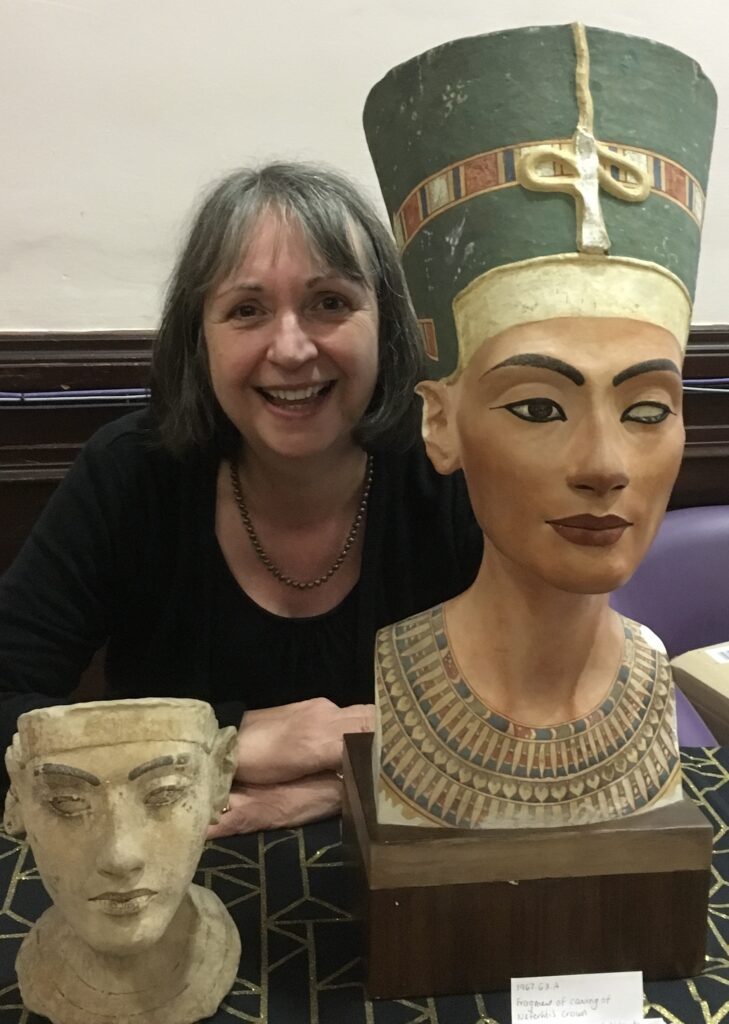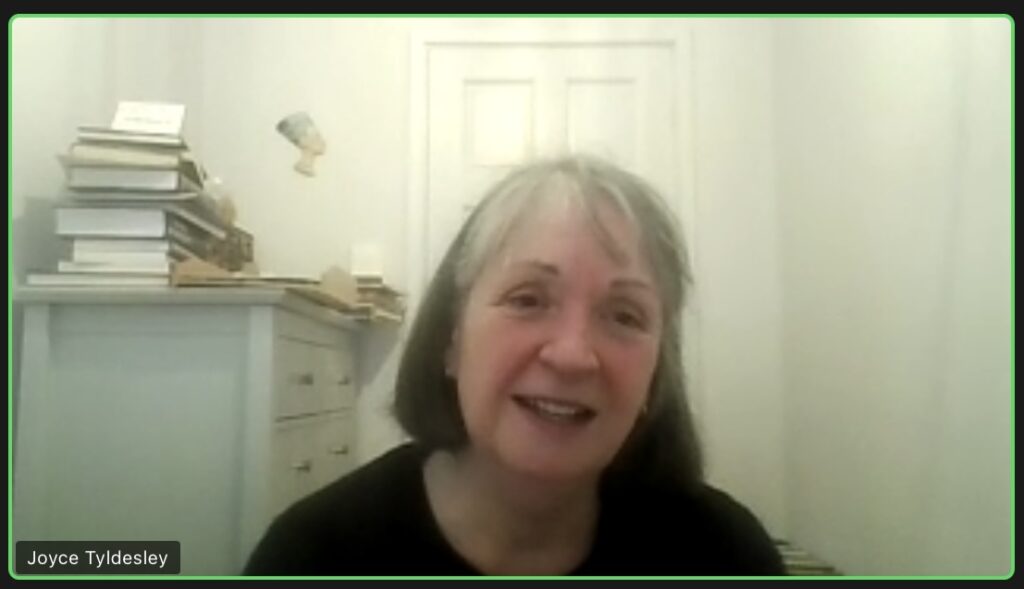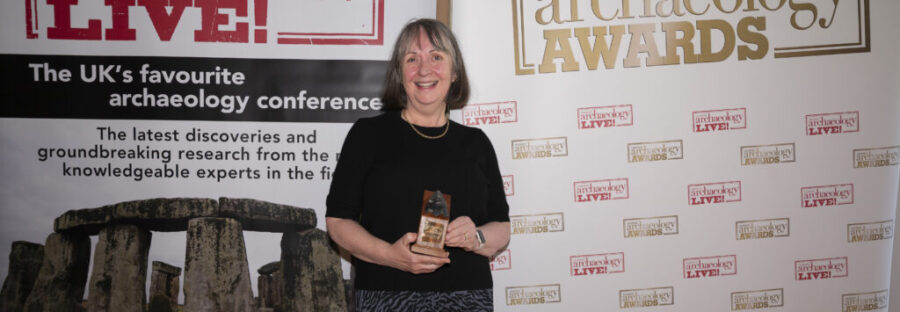Manchester academic named Archaeologist of the Year
- Featured image credit: Adam Stanford
A Manchester academic has been named 2025’s Archaeologist of the Year thanks to her work in Egyptology and distance-teaching research.
Professor Joyce Tyldesley OBE won the title following a public vote in the Current Archaeology magazine, the biggest archaeology publication in the UK.
“I’m still totally, amazed. It’s brilliant, it’s great – I can’t put it into words really,” she said. “It’s difficult to express how deeply honoured I feel.”
After 15 years in the field, Joyce now teaches at the University of Manchester, specialising in women in ancient Egypt. In that time, she has won numerous awards for her work and for her extensive list of books on the subject – including an OBE for her services to Egyptology and heritage last year.
An interest in the everyday
Before going on to become the Archaeologist of the Year, Joyce’s career began smaller: despite a degree in Liverpool and a doctorate in Oxford, a hostile job market turned her talents towards 20 years of accounting instead.
“But I never let go of archaeology,” she said. “I continued to do field work, and I’d shifted over to Egyptology in that time anyway.
“I started to teach night schools, and I started to work for a children’s magazine, Dig Magazine.
“I was Doctor Dig,” she laughed. “And I answered questions about dinosaurs.”
It was at this time that she’d already begun to write, frustrated by the thin choice of books for enthusiasts like herself, outside of education.
“In those days there were either learning journals or very, very basic books, and just nothing in between for an interested person to just read and learn and develop an understanding,” she said.
“The teaching I got in the university was excellent, but I always felt there was something missing for me, in that it was difficult to relate to these elites and the very formal history – I was much more interested in the everyday.
“To me, that’s the intriguing part of it: how did people live? What did they have for breakfast? Did they have breakfast? That’s what always fascinated me, and it was hard to find [that information] in those days.
“Writing my first book was really my own exploration in trying to teach myself about how it works, and I thought, well, if I’m interested, other people probably are, too.”
Excluded from history
When a job opened in the University of Manchester in 2007, she took the opportunity with both hands. Her interest in the everyday developed into a fascination with the lesser-heard in history as her writing began to focus on women in ancient Egypt.
“When you’re looking at these times in history, I think the problem is that a lot of archaeology has been uncovered and discussed and put into print. It can kind of set it in stone, blind people,” she said.
“150 years ago, people had their own assumptions and so on. And it’s quite important that we try and free ourselves from that – we use their books as resources for what we’ve found, but we don’t necessarily have to follow how they thought about things.
“Women tend to be excluded from big chunks of history. There’s a lot of men who are excluded as well – but there’s very few people who actually feature in history from beginning to end, aren’t there?”

Distance-teaching
Alongside her work on Egyptology, Joyce has also been considered a long-time pioneer of distance teaching research – almost a decade before the Covid-19 pandemic forced the nation into lockdown.
“When we started, very few people were doing it – the internet wasn’t full of resources like it is now, and people were very hesitant,” she said. “We couldn’t find much written about it at the time because it was such a [newly-emerging] subject.
“A lot of people are interested now, post-Covid, because it was such a big thing. But back then, it was obviously more niche. We thought it was going to take off – and then Covid came along and now everybody knows about distance learning.
“I teach almost everything online, and my online students tend to come from very different backgrounds – I’ve had students as young as 14 enrol in the courses, but I’ve had students as old as 80 as well.
“We have such interesting discussions because there are so many people able to contribute something different. For me, every time I teach and do the same courses every year, I learn more and more about it – my eyes are open to possibilities even more, which is what learning should be.
“I’m a very different Egyptologist now than I was when I started. And I think that’s great.”

Plans for the future
Going forward, Joyce plans to continue teaching and researching, both in Egyptology and in a more recent research project with an ex-student – the use of meteorite iron in ancient Egypt.
“We had to let [the project] lapse for a little bit, but it seems to be gathering speed again,” she said. “It’s an absolutely fascinating subject – and I got to actually handle a meteorite!”
Alongside her research, she is also working on a new book, which will return to some of her first work on women in ancient Egypt.
“It’s almost like a revisit, but I’m looking at it in a very different way – I’m looking at these studies of women and using those as sort of starting points.
“I wrote my first book a very long time ago: everything’s moved on, I’ve moved on, the subject has moved on, access to resources has moved on.
“I thought now would be the time to do this, and I’m really enjoying it,” she said. “Our understanding of the past and diversity has had excellent improvements, and I’m hoping to try and reflect some of that. That’s what I really want to do.”


